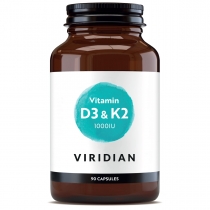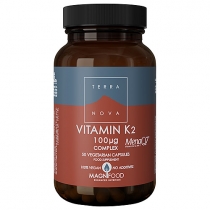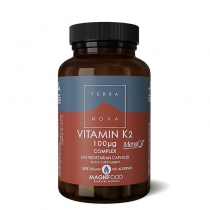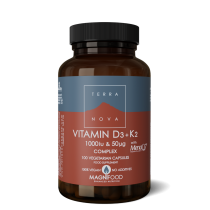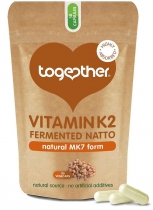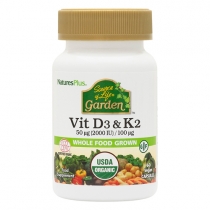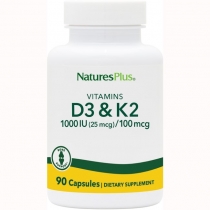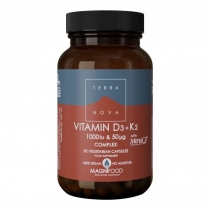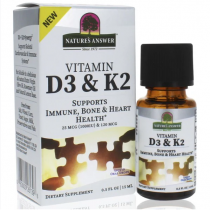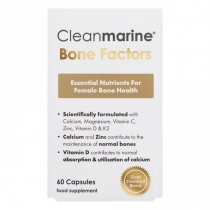Vitamin K
Our intestinal bacteria manufacture vitamin K and it's main role is to maintain healthy blood clotting. Taking antibiotics kills good and bad bacteria and can lead to a mild vitamin K deficiency, mostly in people who already had low levels. Vitamin K is needed to store carbohydrates in the body and to support bone structure. It exists in different forms; the kind produced in our bodies is K2, K1 is available in the chlorophyll of plants and vitamin K3 is synthetically produced.
Vitamin K is available on it's own or in multimineral / multivitamin supplements i.e. it is popularly combined with calcium, magnesium and vitamin D. Vitamin K works synergistically with vitamin D and calcium, helping to strengthen your bones. It can also be added to the diet through green food supplements such as alfalfa, wheatgrass, barley grass or kelp.

